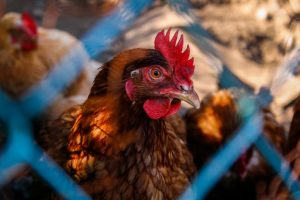Rise of Agriculture in Cities and Towns
by Katelyn Huffman
 There has been a lifestyle change among the “Generation X” and “Millennial” population
There has been a lifestyle change among the “Generation X” and “Millennial” population
over the last decade. Many families are moving to suburban areas in hopes that their
families will stay and grow in a neighborhood that allows for sustainability and
convenience. Instead of world travel and big cities, people are opting to move into a
community with residents willing to work together to preserve, stimulate, and support a
self-sustaining, green environment.
Due to this change in perspective, agriculture has become a viable option for growing
families looking for a home and a farm to table lifestyle. In Massachusetts, agriculture is
protected by Massachusetts General Law and prevents communities from creating lots
that are unable to utilize a small farm or the keeping of livestock.
Cities and Towns everywhere in Massachusetts are experiencing a rise in agricultural
requests at their respective City and Town Halls. As such, it has become evident that
agriculture has become a staple in local communities and their economic development.
Residential farms produce products for local businesses, revenue for families, and
preservation of land.
It is not uncommon for residential farms to house chickens, horses, alpaca, sheep, and
other livestock on their residential compound. Chickens, in particular, are on the rise in
Massachusetts cities and towns. Chickens provide a source of sustainability for many of
these local farmers. Chickens allow for families to have a constant supply of eggs
throughout the year. When excess eggs are available, they are sold within the
community and provide money for other supplies that cannot be home grown.
Excess crops and produce are often sold to the surrounding communities. These
farmers provide economic stimulation for themselves and fresh organic produce to local
citizens. Farmers markets, local farm stands, and other vendor opportunities provide
income and stimulate growth of these small farms and allow for business to thrive and
flourish in cities and towns. It also allows for citizens in the community to buy affordable
organic produce, and get farm to table nutrition without inflated prices.
Chickens are also used to reduce the amount of trash that is thrown out in the local
community, therefore lessening the overall day to day environmental impact of local
residences. Chickens that are fed scraps of food from households help diminish waste
at local transfer stations and allow for a greener community. Recycling scraps also help
sustain the food supply for the chickens to allow them to grow and retrieve nutrients.
After the consumption and passing of these scraps, the fecal matter is absorbed into the
earth. The fecal matter acts as a natural nitrogen-rich fertilizer that can enhance crops
for residential gardens and farms.
Chickens are also a wonderful insect deterrent. Since chickens consume insects,
residents can avoid the use of chemicals and other pesticides on their property. Many of
the chemicals used to prevent insects are very harmful to humans, animals, and plants
alike. They prevent natural growth and severely impact the environment as a whole.
Keeping chickens allows for a natural way to prevent insects and to allow for natural,
organic growth of animals, gardens, and crops alike.
Some local residential farmers are restricted when it comes to raising chickens. Many
local communities have ordinances or bylaws that prevent the keeping of roosters at
their residential compounds. These ordinances and bylaws are put in place to protect
neighbors from the crow of roosters during early morning hours. Due to these
restrictions, it is often hard for local families to raise baby chicks and to continue the
growth of their chicken farm. It forces many of these families to go elsewhere to buy
chickens and to sustain their livestock as they grow and age.
Although this restriction prevents breeding of chickens, it has not prevented the growth
and expansion of these small home based farms. Having a farm and chicken coop at
home is a natural sustainable way to provide income and food to individual families and
local communities as a whole. These compounds allow for the preservation of land and
the revitalization of soil while also setting precedence for future residents alike.
Overall, the rise of agriculture has been a benefit for local cities and towns in
Massachusetts. It has helped local communities, stimulated the economy, and provided
a way to preserve land. The overall scope and impact of these small farms have been
great. Many cities and towns welcome these small farms and coops into their
community and hope to see them make a substantial impact on their respective
communities.
Katelyn Huffman is an aspiring writer from Massachusetts. She works with municipalities regarding Land Use, Finance, and Planning. She studied Political Science at Fitchburg State University and has been doing so for over five years. In her free time, Katelyn likes to relax with her family, travel, and read.
 Hobby Poultry A Chicken in Every Yard
Hobby Poultry A Chicken in Every Yard





More and more people are keeping poultry in their suburban yards especially. A good thing especially for those who practice proper animal husbandry.